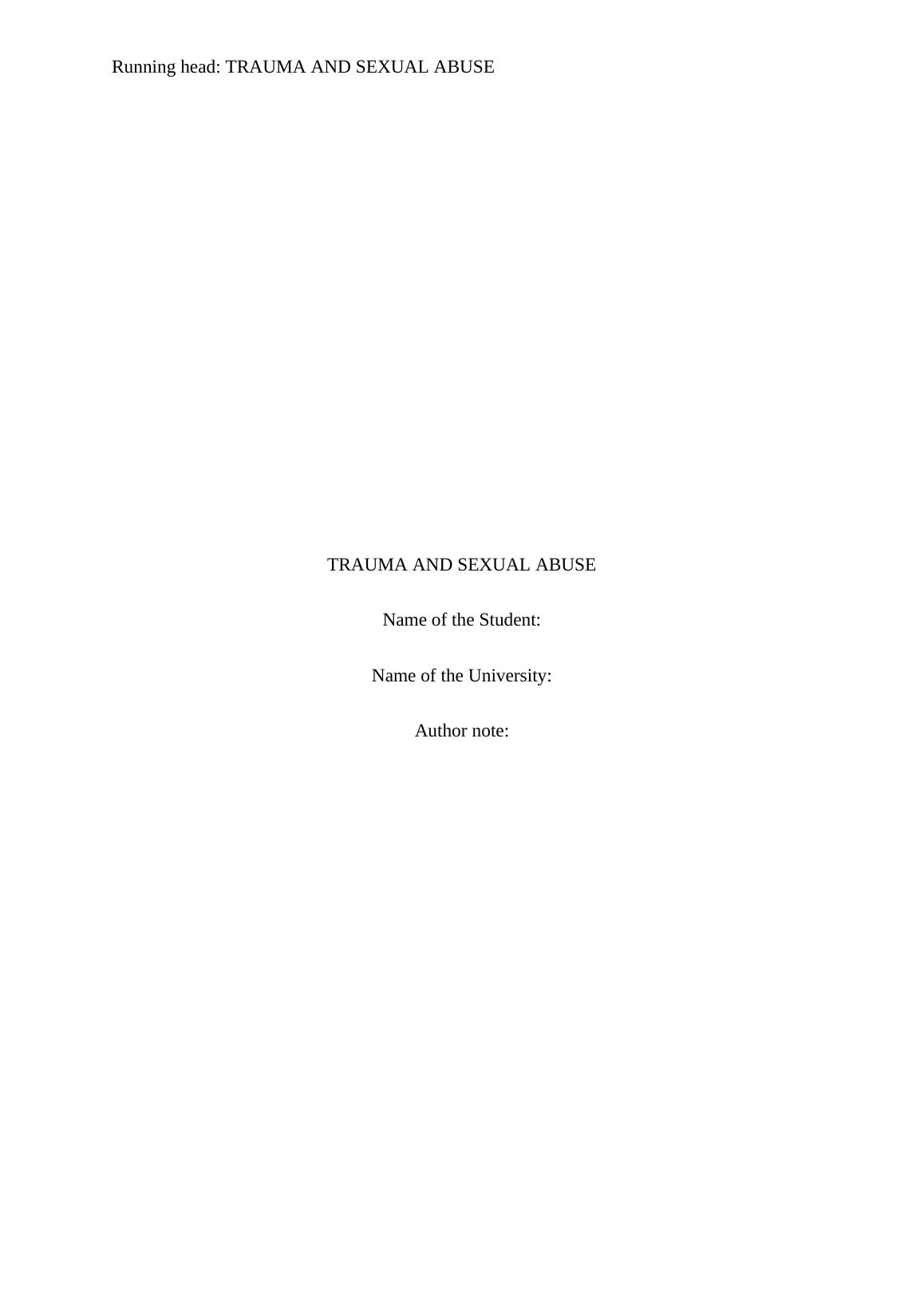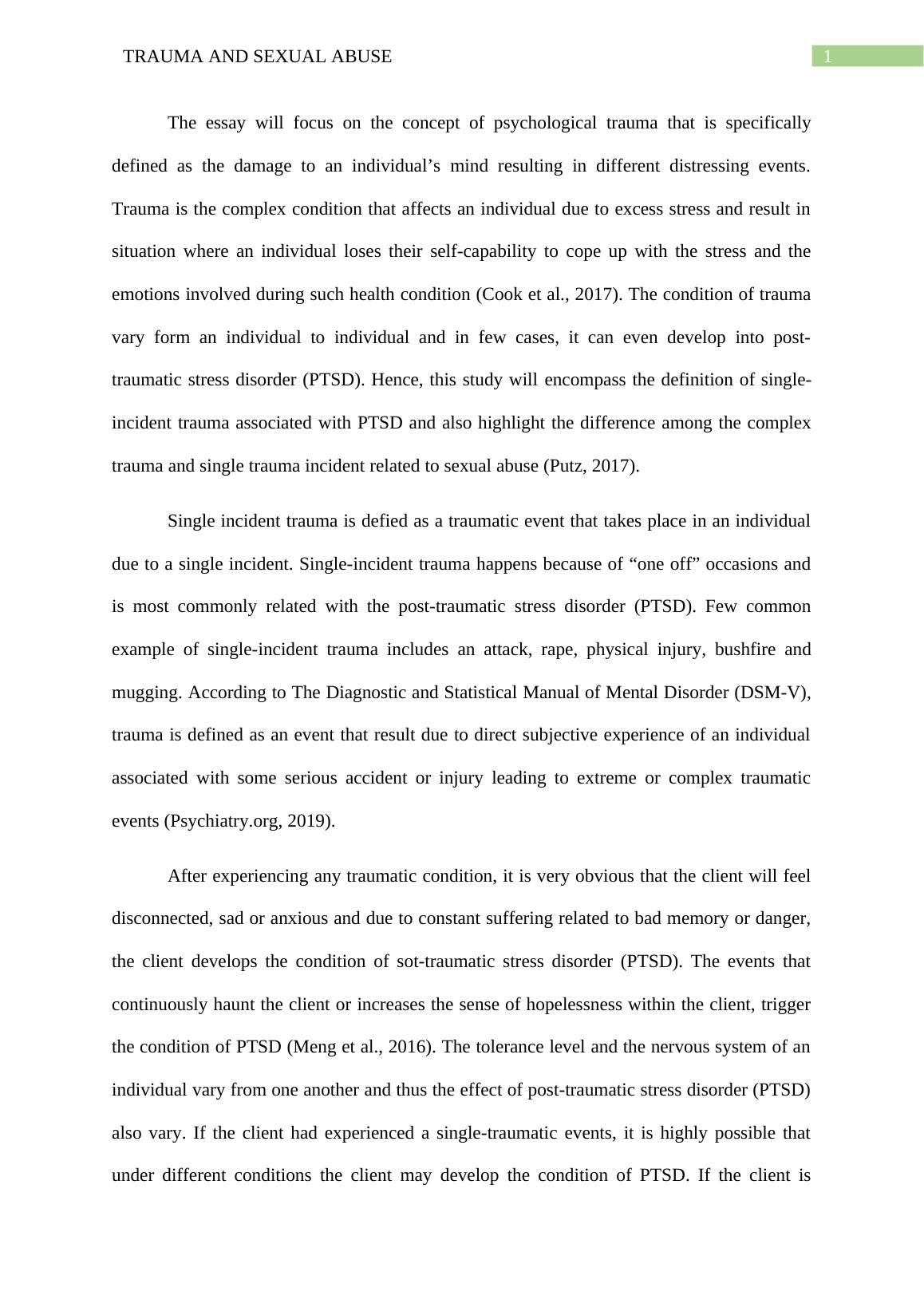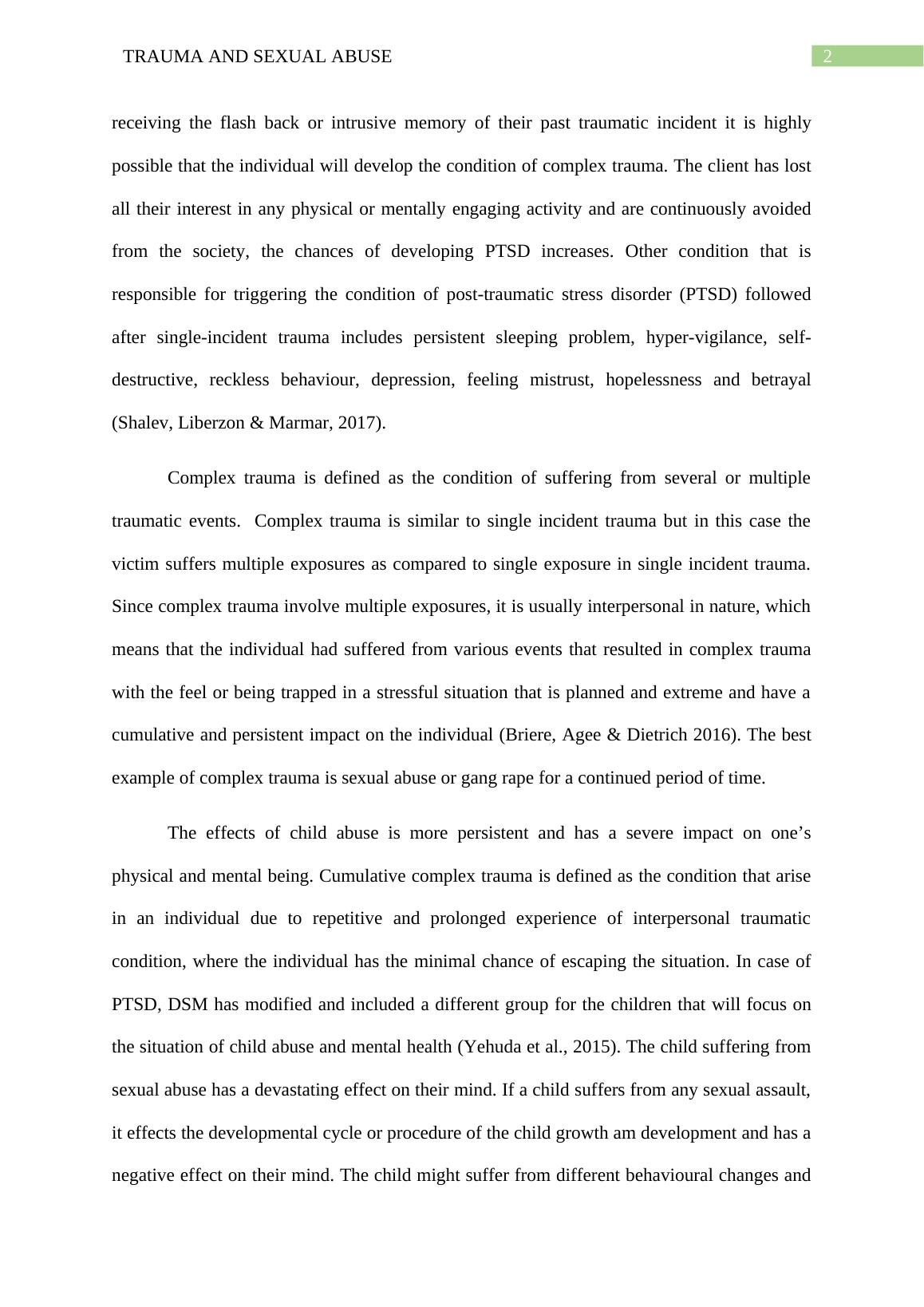Trauma and Sexual Abuse - Understanding the Difference between Single-Incident Trauma and Complex Trauma
6 Pages1580 Words276 Views
Added on 2022-11-23
About This Document
This essay discusses the difference between single-incident trauma and complex trauma related to sexual abuse. It highlights the symptoms of PTSD and the diagnostic criteria for children under six years of age. The essay also explains the concept of psychological trauma and its impact on an individual's mental health.
Trauma and Sexual Abuse - Understanding the Difference between Single-Incident Trauma and Complex Trauma
Added on 2022-11-23
ShareRelated Documents
End of preview
Want to access all the pages? Upload your documents or become a member.
Trauma-Informed Care
|12
|3512
|120
Mental Health | Post Trauma Stress Disorder
|8
|2362
|16
Essay on Complex trauma 2022
|10
|2957
|24
Trauma-Informed Care for Addiction Patients: Understanding Trauma and Relapse Prevention Therapy
|7
|1585
|474
Clinical Psychology United States Discussion 2022
|6
|1107
|52
A case study on Post traumatic stress disorder
|11
|3847
|2



